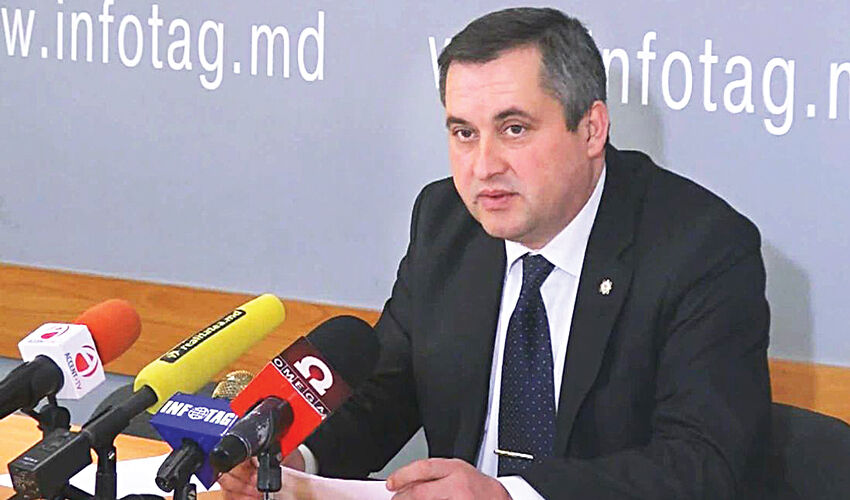
Oleg Garizan
We have not been able to find out how many mayoralties in Moldova are currently living on the old budget. The Congress of Local Authorities (CALM) does not have such statistics, and requests to other authorities have not yet been answered. Experts, including CALM, comment on the situation in the sense that the legislation provides for such situations, and mayoralties can work on the budget of the previous year.
Indeed, the Law on Local Public Finances states: “If the budget of an administrative-territorial unit (ATU) is not approved by December 31, the financing of expenditures is carried out monthly in proportion to 1/12 of the amount of expenditures … of the previous budget year, within the limits of available financial resources, until the approval of the new budget”.
However, another provision of the law states: “If the budget of the ATE has not been approved before the beginning of the budget year, the implementation of general purpose transfers … shall be suspended until the budget is approved.” Meaning transfers that are given to mayoralties for socio-economic development. And this is a significant disadvantage that prevents localities from developing.
Although Chisinau continued to implement projects launched in previous years, despite the lack of an approved budget, the problem was that it could not receive funds for capital investments and initiate new projects for which funding is planned in the state budget.
The capital’s mayor’s office claimed that the planned programs, from small to large ones, are being implemented in the municipality according to the plan, there are no delays in salaries, and debts are not accumulating. And the City Hall has enough funds until the end of 2025. Indeed, our capital city, to the joy of Chisinau residents, today resembles a construction site, and there are no scandals with non-payment of funds.
However, as it turned out, there are many projects of socio-economic nature in the capital and its suburbs, planned to be implemented but not started due to the unapproved budget. It is about repair and thermal insulation of buildings of medical and educational institutions, creation of sports infrastructure, improvement of yards and repair of roads.
The Chisinau mayor’s office had to urgently solve, together with the central authorities, the problem of transferring the funds (100 million lei) that the government had allocated to the municipality during the budget adjustment. The funds were meant for the feeding of pupils from 5 to 12 grades from September 1 this year. Without an approved budget, the transfer procedure became more complicated. Therefore, they were sent directly to the schools.
In addition, there is a significant difference between last year and this year in terms of expenditures. Energy rates were increased in the winter. The increase amounted from 40% to 70%. The costs of the capital municipality have also increased. In order to cover them, some projects had to be frozen. Only in the first two months of this year, such expenses increased by 400 million lei. Although the municipality was reimbursed from the state budget, this was an additional waste of time and effort.
During the preparation of this material, the opinion was repeatedly voiced that the capital’s budget is not adopted because of the elections. Last year – because of the presidential elections, this year – because of the parliamentary elections. Whether it is so, it is difficult to assert, but all summer the question of adoption of the budget for the current year was not raised in the muncipal council because of complete absence of consensus. The last meeting at which it was discussed took place on May 20 this year. Then the councilors agreed on only one item on the agenda, after which a pause was declared until the next meeting. On May 27 this year, they lacked a quorum.
Today, elections are a thing of the past, and it is possible that the draft budget could be considered as early as next week. It is ready and its parameters are available on the website. The issue is that the conditions of the councillors, which are the reason why the budget has not yet been adopted, remain the same.
From conversations with local elected officials, it appears that the final solution to the issue of the sanitation tax, because of which the draft budget for 2025 was not approved at the end of last year, has not been resolved. Representatives of the Socialist Party continue to demand the inclusion in the budget of expenses for heating compensations for vulnerable residents of Chisinau. The Action and Solidarity (PAS) party faction insists on funding for after-school groups, personal assistants, and support for low-income families.
This situation with the approval of the budget for the current year is not only in Chisinau. In Gagauzia, for example, in Ferapontievca village (Comrat district) the budget was approved only this year. As well as in Aluat village (Taraclia district). And Copceac village (Ceadir Lunga district) is still operating under the old budget. Most likely, there are many more such mayoralties in Moldova.
“We managed to minimize budget losses due to the fact that the main projects related to rural development were approved separately by the council at the beginning of the year,” says the mayor of Copceac v. Oleg Garizan, the mayor of Copceac village. – We foresaw this development and took measures. When it comes to specific projects that solve pressing problems of villagers, it is more difficult to vote “against”. But not all mayoralties have experienced specialists who could find a solution in such a situation”.
– Unfortunately, the inability to find compromises, pursuing narrow partisan interests or personal ambitions, has become a trend that should be studied and analyzed in order not to become its hostages,” he continues. – This situation leads to blocking and sabotage of important decisions, so it is necessary to look for a way out of this situation.
In our legislation on local public administration there is a provision according to which the local council is dissolved. This happens if “for six consecutive months it has not made a single decision, regardless of the number of meetings held”. At the same time, the parliament is dissolved automatically if it cannot approve the government.
“It may be worth considering options to solve this problem legislatively,” says Oleg Garizan. – It is possible to increase the degree of responsibility of the councilors, prescribing it in the Law on Local Public Administration. Or the powers of the mayor’s office, as it happens in Turkey, for example. But in any case, the problem should be solved to reduce the influence of the subjective factor.

